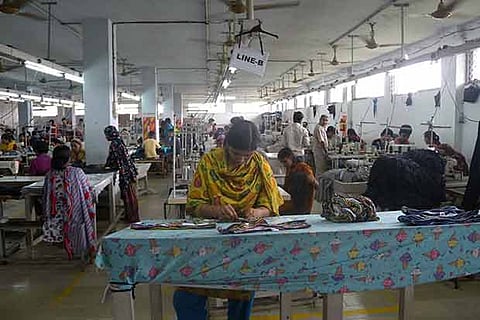

Chennai
Few profits trickle down to the tens of thousands of workers they employ, says filmmaker PR Amudhan, who has made a documentary that chronicles the plight of those at the bottom of a global supply chain. The name of his film, “Dollar City”, refers to the southern Indian city, which is home to an expanding garment industry, one of the pillars of India’s economy - and the foreign exchange it generates through exports. “It is the owners who are receiving, enjoying and consuming the dollars that come into this city, which produces garments for brands across the world,” Amudhan told the Thomson Reuters Foundation. “The worker earns very little in the city that is often referred to as dollar city. And today, there is complicit silence on the issue, even the super exploited worker is not complaining.”
The film has been screened 50 times across India since its release on May 1, to audiences that include manufacturers, workers and policymakers - sparking a debate on what some unions fear is the acceptance of exploitative conditions in the sector.
“The documentary has revealed the enormous power wielded by the garment industry, the abominable conditions in which factory workers live and work in Tirupur,” Sujatha Mody, president of Garment and Fashion Workers Union, wrote in a blog after watching a screening with workers in Chennai. Other viewers were shocked by the urban squalor and poverty in Tirupur. India is one of the world’s largest textile and garment manufacturers serving the international and increasingly, domestic market.
Many of the workers employed in the $40-billion-a-year industry are trapped in debt bondage, face abuse or are forced to work long hours in poor conditions, campaigners say. The documentary, which also explores the government’s complacency in implementing labour laws, featured uncomplaining, muted voices of workers from Tirupur. “None of the garment workers interviewed in the film spoke of their difficulties,” Mody said.
Thompson Reuters Foundation
Visit news.dtnext.in to explore our interactive epaper!
Download the DT Next app for more exciting features!
Click here for iOS
Click here for Android